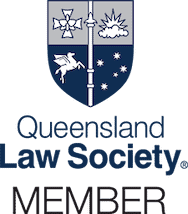Kirby v Blackwood (Workers’ Compensation Regulator) [2015] QIRC 184
The Queensland Industrial Relations Commission (Commission) has refused the appeal of a worker seeking compensation for degenerative disc disease.
The Facts
Ms Kaye Kirby (Appellant) underwent a spinal fusion to her L1 – L3 discs in 1991.
In about 2001, she started working for InvoCare Australia Pty Ltd (InvoCare) as a Funeral Manager. She told InvoCare about her pre-employment spinal surgery.
In 2010, she started to suffer back pain and in 2011, sciatica. The Appellant brought a common law claim for a back injury (injury) and a secondary psychiatric injury arising out of her employment with the InvoCare. Before the Appellant could proceed with her common law claim, she had to establish that she had an entitlement to compensation under the Workers’ Compensation and Rehabilitation Act 2003 (Qld).
The Appellant alleged that her injury arose out of her work over the period 2011 to 2012.
The duties the Appellant claimed contributed to her injury included:
- moving chairs
- carrying Neverfail water bottles
- vehicle maintenance
- coffin deliveries
- transfer of deceased persons
- transfer of caskets/coffins and pallbearing at funerals
- burials
The Appellant’s claim was rejected by the Workers’ Compensation Regulator (Regulator). She appealed the Regulator’s decision to the Commission.
The Issue
The issue for determination by the Commission in the Appeal was whether the Appellant’s injury arose in the course of her employment.
The Experts
The Appellant relied upon the evidence of Dr Gillett, Orthopaedic Surgeon, in support of her claim. Dr Gillett provided a report to the effect that work practices over a period of time in relation to manual lifting, particularly the lifting of coffins, would have placed stress and strain on the lower back and on the Appellant’s fusion. Dr Gillett said that even without the work of a funeral director, the Appellant would have had some increasing degeneration to her lumbar spine. However, he estimated her duties caused an acceleration in her degeneration of 5 years more than what would have occurred.
The Regulator relied upon the evidence of Associate Professor Peter Steadman, Orthopaedic Surgeon. Associate Professor Steadman was of the opinion that the Appellant was suffering from Adjacent Segment Disease (ASD) an almost inevitable consequence of her previous spinal fusion. Importantly, he was ‘unable to ascertain any specific work related event or contribution over a period of time that would indicate employment was the cause of her complaint in terms of the deterioration’. Although he accepted that if the Appellant was undertaking regular heavy lifting of the type described, this would have exacerbated her condition, as Dr Gillett opined.
Both experts agreed that ASD can be a consequence of a spinal fusion.
The Judgment
In a judgment delivered on 30 October 2015, Industrial Commissioner Fisher refused the appeal, finding:
- At times the Appellant was required to undertake lifting outside of safe manual handling limits, in lifting oversized coffins. However, the weight of loads borne by her was not satisfactorily established.
- The Appellant was symptom free until 2010. The development of her symptoms was not associated with any particular incident or work task.
- The onset of the Appellant’s symptoms was more consistent with the evidence of Dr Steadman.
- The Commission was unable to accept on the balance of probabilities that the Appellant’s employment was a significant contributing factor to her injury.
Considerations
This case will be helpful for employers and claim managers who are defending manual handling cases. For those with similar claims, what’s most interesting about this case is that the Appellant was unsuccessful despite:
- the Commission accepting that she had undertaken lifting outside of safe manual handling limits.
- the employer giving the Appellant manual tasks with knowledge of her pre-employment spinal fusion.
Manual handling cases can be the most difficult types of workers’ compensation claims to defend. However, this decision highlights that workers may fail where they are unable to identify the precise work duties alleged to have caused their injury.
In claims where workers have an aggravation of underlying degeneration, we consider a number of factors including:
- whether the worker had previously experienced symptoms;
- whether the workers symptoms have become worse over a period of time or with a particular task or activity;
- changed to the workers treatment and medication.
Once a worker has an accepted statutory claim in Qld, they may access statutory compensation benefits. When a statutory claim comes to an end, they may then pursue a common law claim for damages.
Need advice specific to your injury?
Denning Insurance Law provides advice and representation in workers’ compensation claims, at every stage of the claims process. If you have a claim involving underlying degenerative disc disease, getting legal advice at an early stage can improve your prospects of success.
Book a FREE one (1) hour initial telephone consultation with Accredited Personal Injury Law Specialist and Principal, Kate Denning for advice and guidance with:
- Proving that your employment caused your degeneration to become symptomatic
- What happens at the end of your statutory claim
- Gathering expert medical evidence in support of your case
- Your potential common law entitlements relating to an aggravation of underlying disc disease
Call (07) 3067 3025 to book an appointment now or, send an online enquiry.





